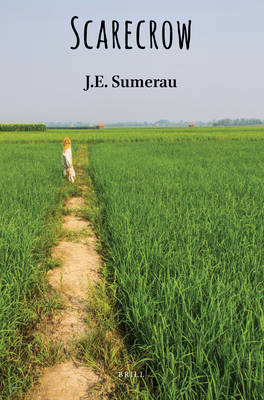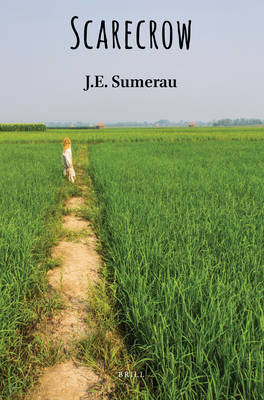
- Afhalen na 1 uur in een winkel met voorraad
- Gratis thuislevering in België vanaf € 30
- Ruim aanbod met 7 miljoen producten
- Afhalen na 1 uur in een winkel met voorraad
- Gratis thuislevering in België vanaf € 30
- Ruim aanbod met 7 miljoen producten
Zoeken
Omschrijving
Who am I? Where did I come from? What is a family? How do families of choice develop?
These questions permeate the pages of Scarecrow wherein a bisexual, nonbinary trans feminine person named Erin seeks to make sense of her life in relation to the places, people, and events she has seen and left behind over time. As the novel begins, Erin tells us that "39 funerals, 35 years, and too many lovers to bother remembering brought me to this point." From this opening statement, Erin reflects on three-and-a-half decades of experiences growing up working class, white, and queer in the southeastern U.S.; navigating sexual, gender, classed, racial, and religious meanings and relationships; surviving varied types of love, trauma, kindness, and violence; and joining the upper-middle class world of the professoriate. As the novel progresses, she shows us how these experiences intertwine, create opportunities, and leave scars that together fashion who she has become over time and in relation to others.
Scarecrow could be utilized in the teaching of sociology, social psychology, Symbolic Interactionism, narrative, families, gender, sexualities, race, class, geography, biography, Southern Studies, LGBTQIA studies, trauma recovery, courses about aging and the life course, or of course, it could be read entirely for pleasure.
These questions permeate the pages of Scarecrow wherein a bisexual, nonbinary trans feminine person named Erin seeks to make sense of her life in relation to the places, people, and events she has seen and left behind over time. As the novel begins, Erin tells us that "39 funerals, 35 years, and too many lovers to bother remembering brought me to this point." From this opening statement, Erin reflects on three-and-a-half decades of experiences growing up working class, white, and queer in the southeastern U.S.; navigating sexual, gender, classed, racial, and religious meanings and relationships; surviving varied types of love, trauma, kindness, and violence; and joining the upper-middle class world of the professoriate. As the novel progresses, she shows us how these experiences intertwine, create opportunities, and leave scars that together fashion who she has become over time and in relation to others.
Scarecrow could be utilized in the teaching of sociology, social psychology, Symbolic Interactionism, narrative, families, gender, sexualities, race, class, geography, biography, Southern Studies, LGBTQIA studies, trauma recovery, courses about aging and the life course, or of course, it could be read entirely for pleasure.
Specificaties
Betrokkenen
- Auteur(s):
- Uitgeverij:
Inhoud
- Aantal bladzijden:
- 186
- Taal:
- Engels
- Reeks:
- Reeksnummer:
- nr. 45
Eigenschappen
- Productcode (EAN):
- 9789004468146
- Verschijningsdatum:
- 3/06/2021
- Uitvoering:
- Paperback
- Formaat:
- Trade paperback (VS)
- Afmetingen:
- 154 mm x 234 mm
- Gewicht:
- 258 g

Alleen bij Standaard Boekhandel
+ 82 punten op je klantenkaart van Standaard Boekhandel
Beoordelingen
We publiceren alleen reviews die voldoen aan de voorwaarden voor reviews. Bekijk onze voorwaarden voor reviews.








